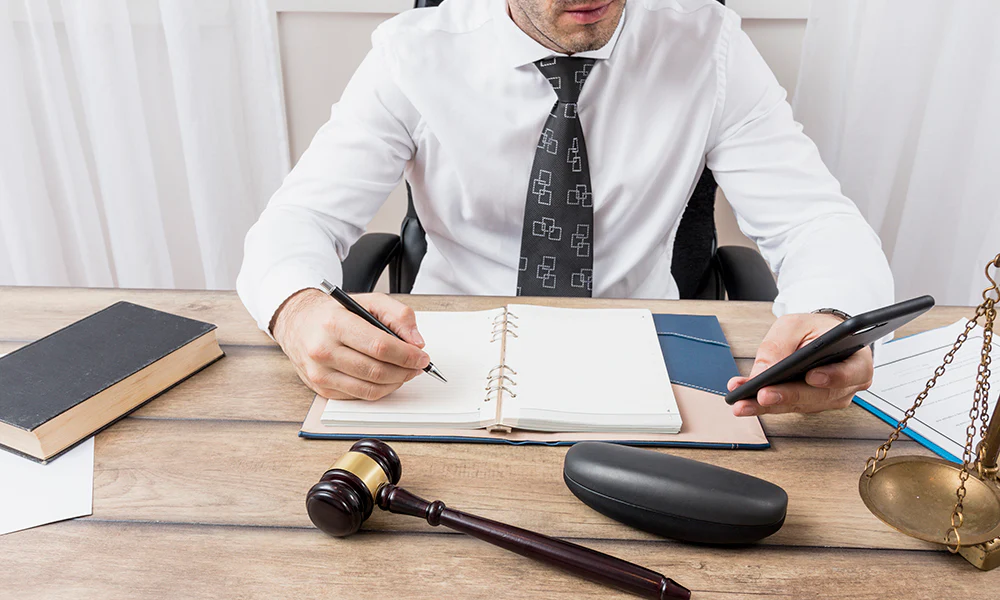False allegations in sex crime cases are not as uncommon as many might think. When someone is accused of a sex crime that they did not commit, the consequences can be devastating—not just for the accused but also for the alleged victim. These false accusations can lead to wrongful convictions, significant harm to reputations, and even prison time for innocent people.
In this post, we’ll explore how false allegations can impact a sex crime defense, how the defense can respond to these types of accusations, and what individuals can do to protect themselves if they are wrongfully accused.
What Are False Allegations in Sex Crime Cases?
A false allegation is when someone accuses another person of a crime they did not commit. In the case of sex crimes, this could mean:
- A person falsely claims to have been assaulted or abused.
- A person deliberately fabricates an accusation in order to seek revenge or gain something (e.g., a child custody battle or financial gain).
- A misunderstanding or misinterpretation of consent that leads to false claims.
While accusations of sex crimes are often serious and should be treated with utmost care, false allegations can also have long-lasting and harmful effects on innocent people. These false claims can be motivated by a range of reasons, including personal vendettas, emotional distress, or a misunderstanding of events.
Why Are False Allegations Made in Sex Crime Cases?
There are many reasons why a person may make a false allegation in a sex crime case. Some of the most common reasons include:
1. Revenge or Anger
One of the more unfortunate motivations behind false allegations is revenge. If someone feels wronged or hurt by another person, they may falsely accuse them of a crime, believing that this will be a way to “get back” at them. This is particularly common in cases where there are ongoing personal conflicts, such as in divorce or custody battles.
2. Misunderstandings
In some cases, miscommunication or misunderstanding may lead to a false accusation. For example, a person may regret engaging in a sexual act and then mischaracterize the event as assault or abuse in order to avoid personal embarrassment or guilt. Alternatively, someone may falsely perceive that they did not consent to an encounter, even if they agreed to it at the time.
3. Manipulation or Attention-Seeking
Unfortunately, some individuals may make false claims as a way to gain attention or sympathy. They may feel they can benefit from being seen as a victim or may want others to believe they are a part of a larger social movement or issue.
4. Mental Health Issues
In certain cases, a person may falsely accuse someone of a sex crime because of underlying mental health issues. Conditions like personality disorders or delusional thinking can sometimes lead to fabricated stories that the person truly believes, even though they are not grounded in reality.
5. Coercion or Pressure
In some instances, individuals might be pressured by others (family members, friends, or third parties) to make false claims. This is often seen in cases where there is a desire to punish someone or gain leverage in a legal or social situation.
The Consequences of False Allegations for the Defendant
False allegations in sex crime cases are incredibly serious and can have wide-reaching consequences for the accused, even if they are ultimately found innocent. The impact on the defendant can include:
1. Legal Consequences
Even when an individual is not convicted, the mere accusation of a sex crime can lead to significant legal challenges. These include:
- Arrest and Detention: Being accused of a sex crime often results in immediate arrest and detention, which can be emotionally and financially devastating.
- Criminal Investigation: The police and prosecutors will likely conduct a thorough investigation into the claims, which can take time, resources, and may lead to uncomfortable or invasive procedures.
- Charges and Trial: Even if the charges are eventually dropped, being formally charged and going to trial can create a long-lasting legal burden. In some cases, innocent individuals may end up facing criminal charges they never deserved.
2. Reputational Damage
A person falsely accused of a sex crime can experience irreparable harm to their reputation. Even if the charges are later dropped or they are acquitted, the public stigma of being accused can linger long after the legal case is over. The accused may face:
- Social Ostracism: Friends, family, and colleagues may distance themselves from the individual, assuming that there must be some truth to the accusation.
- Damage to Career: In many cases, a false accusation can severely affect the accused’s professional life. They might lose their job, clients, or opportunities for future employment due to the stigma associated with a sex crime allegation.
3. Emotional and Psychological Impact
The emotional toll of being accused of a sex crime, even when the accusation is false, can be overwhelming. The accused may experience:
- Stress, anxiety, and depression: The uncertainty of facing a criminal trial, coupled with the damage to one’s reputation, can lead to severe emotional distress.
- Relationship Strain: The emotional impact on personal relationships can be devastating, as partners, friends, and family members may struggle to cope with the accusations and the ensuing legal battle.
4. Financial Costs
Fighting a false accusation can be an expensive process. Legal fees, costs associated with defending against the allegations, and the potential loss of income can place the accused under severe financial strain. Even if the individual is acquitted, the costs of defending themselves can be significant.
How the Defense Responds to False Allegations
In cases involving false allegations, a strong defense is necessary to ensure the truth prevails. A skilled defense attorney will work strategically to challenge the prosecution’s evidence and cast doubt on the credibility of the allegations.
1. Investigating the Allegations
The defense will often conduct its own investigation into the circumstances surrounding the allegations, which may involve:
- Interviewing witnesses: Finding individuals who can confirm the defendant’s version of events or cast doubt on the accuser’s story.
- Examining physical evidence: Challenging forensic evidence, such as DNA, to demonstrate that it does not link the defendant to the crime scene.
2. Discrediting the Accuser
If there is a credible reason to believe the accuser is making false claims, the defense will seek to discredit their testimony. This can include:
- Highlighting inconsistencies or contradictions in the accuser’s story.
- Investigating the accuser’s history of making false claims or manipulative behavior.
3. Presenting an Alternative Explanation
In some cases, the defense may present an alternative explanation for the events that led to the accusations. For example, demonstrating that the accuser had a consensual encounter that they later regretted or misrepresented.
4. Establishing a Pattern of False Allegations
If the accuser has a history of making false accusations, this can be critical in demonstrating that their claim in the current case is also false. The defense will seek to present this pattern to the jury.
How to Protect Yourself from False Allegations
If you are concerned about the possibility of false accusations, here are some ways to protect yourself:
- Document interactions: Keep clear records of conversations, texts, and interactions, especially if you feel that a relationship is deteriorating or that there is a possibility of accusations.
- Establish alibis: In situations where you might be at risk, try to establish a clear and verifiable alibi.
- Avoid risky situations: Whenever possible, avoid situations where there is the potential for misunderstanding, and always ensure that consent is clear and mutual in any sexual encounter.
- Consult a lawyer: If you suspect that you may be falsely accused of a sex crime, it is essential to consult with an experienced criminal defense attorney immediately.
Final Thoughts
False allegations in sex crime cases can be devastating for the accused, affecting every aspect of their life. For those facing these accusations, it’s essential to seek legal representation from an attorney who understands how to navigate the complexities of false claims. Through thorough investigation, challenging the accuser’s credibility, and presenting strong evidence, a skilled defense attorney can work to ensure that justice is served and the truth is uncovered. We recommend jersey city sex crime lawyer.




